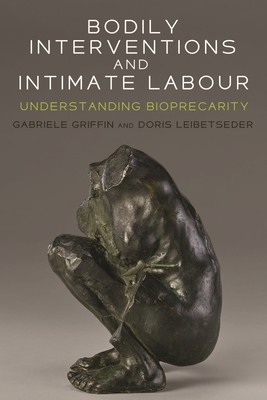
- We will send in 10–14 business days.
- Publisher: Manchester University Press
- ISBN-10: 1526138565
- ISBN-13: 9781526138569
- Format: 15.8 x 23.6 x 2.5 cm, hardcover
- Language: English
- SAVE -10% with code: EXTRA
Bodily Interventions and Intimate Labour (e-book) (used book) | bookbook.eu
Reviews
Description
How have rapid changes in biotechnologisation, for example around assisted reproductive technologies or (re)constructive surgery, effected those seeking help with fertility treatment or clitoral reconstruction? What is involved for queer people in making a family of their own, or for trans people to access the relevant surgery? This volume argues that contemporary cultures foster bioprecarity by categorizing groups of people in certain ways and/or by denying them access to the treatment they seek or need. Drawing on original empirical data with trans and queer people, but also other minoritised and racialized groups, this volume explores how bodily interventions, their regulation, and the intimate labour the interventions involve, create vulnerabilities.
EXTRA 10 % discount with code: EXTRA
The promotion ends in 15d.18:37:10
The discount code is valid when purchasing from 10 €. Discounts do not stack.
- Publisher: Manchester University Press
- ISBN-10: 1526138565
- ISBN-13: 9781526138569
- Format: 15.8 x 23.6 x 2.5 cm, hardcover
- Language: English English
How have rapid changes in biotechnologisation, for example around assisted reproductive technologies or (re)constructive surgery, effected those seeking help with fertility treatment or clitoral reconstruction? What is involved for queer people in making a family of their own, or for trans people to access the relevant surgery? This volume argues that contemporary cultures foster bioprecarity by categorizing groups of people in certain ways and/or by denying them access to the treatment they seek or need. Drawing on original empirical data with trans and queer people, but also other minoritised and racialized groups, this volume explores how bodily interventions, their regulation, and the intimate labour the interventions involve, create vulnerabilities.


Reviews